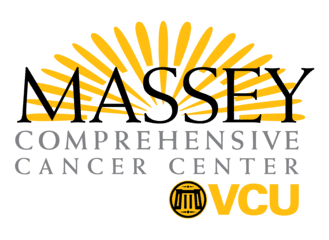When William Weber started experiencing painful complications from his colon cancer treatment in April 2010, he and his wife Gwen became focused on finding relief and a higher quality of life.
As a registered nurse and founding member of the nursing staff of VCU Massey Comprehensive Cancer Center’s Thomas Palliative Care Unit, Gwen was in a unique position to know exactly who to call. Her firsthand experience working with Massey’s internationally recognized clinicians gave her confidence that the palliative care approach would ease William’s pain and provide a much higher quality of life.
“We look at palliative care as a bridge that connects advanced disease and pain with symptom relief and quality of life,” says Patrick Coyne, MSN, ANP, clinical director of the program. “Above all else, our goal is to provide every patient with relief from their suffering."
While palliative care is generally sought by patients with incurable illnesses, it can be provided simultaneously with other types of care at any time. For patients like William, this provides a chance to enjoy the extended life that advanced medical care provides, without suffering through unbearable pain and side effects from that treatment.
“It’s a great relief to talk with the palliative care doctors and know that they are not only considering my disease, my symptoms, and the treatment, but me as a person and how my cancer impacts my life,” says William. “The symptom relief is just as much a life-saver as the medicine that treated my cancer.”
The program is designed to foster comfort through interdisciplinary care that provides symptom control, pain management, holistic support and practical assistance—and most especially patience, kindness and individual attention. Each patient is assigned a team that includes highly specialized physicians and nurses, social workers, physical and occupational therapists, chaplains and volunteers. All of these experts are dedicated to the patient’s physical comfort, emotional and psychological health, and social and spiritual needs. They also provide valuable support for family members and friends.
Tom Smith, MD, medical director for the program, is one of the nation’s leading researchers in palliative care and end of life issues related to cancer. His research has brought numerous new pain management approaches to Massey’s patients.
“The purpose of our care is to achieve the highest quality of life possible for the patient by relieving pain and other difficult-to-treat symptoms,” says Smith. “Thanks to modern medicine, patients can live for years with chronic disease; however, without proper pain and symptom management—including attention to both physical and emotional suffering—the quality of that life can be limited. In fact, if palliative care is provided alongside usual care, patients may live both longer and better.”
This approach provides great opportunity for patients like William, who will benefit from ongoing pain and symptom management. “As patients continue their lives with a chronic illness, the pain and other symptoms aren’t necessarily static,” says Coyne. “The palliative care approach invites ongoing modification of pain relief solutions and encourages ‘tune-ups’ to ensure patients are being managed as effectively as possible.”
Massey's Thomas Palliative Care Unit was one of the first in the nation, and there are now seven physicians and two advanced practice nurses board certified in palliative care among Massey’s clinical faculty.
“After cancer, each day is a gift,” says William, “But that gift comes in much different packaging with the benefit of palliative care. We are so grateful.”
Editor's note: Willy Weber passed away in September 2011 after publication of this article. His wife, Gwen, is grateful for the dignity and quality of life Massey's palliative care team helped Willy maintain during his illness.

